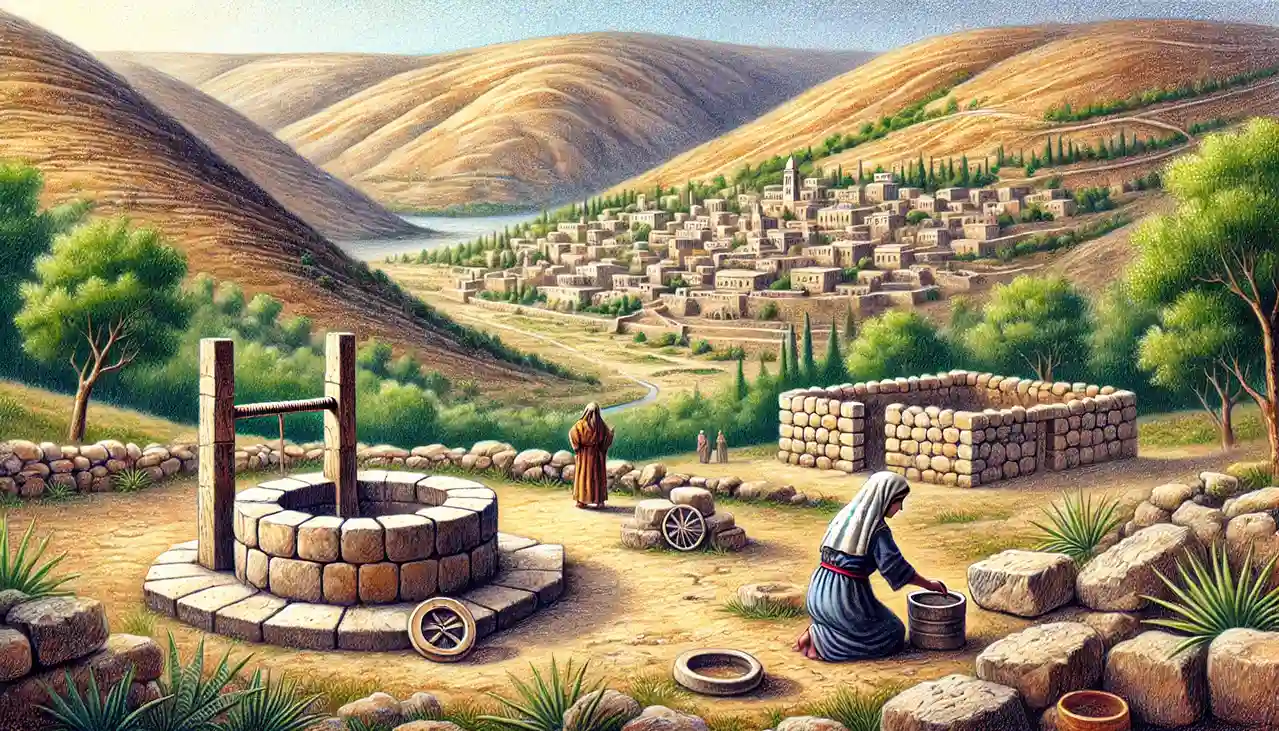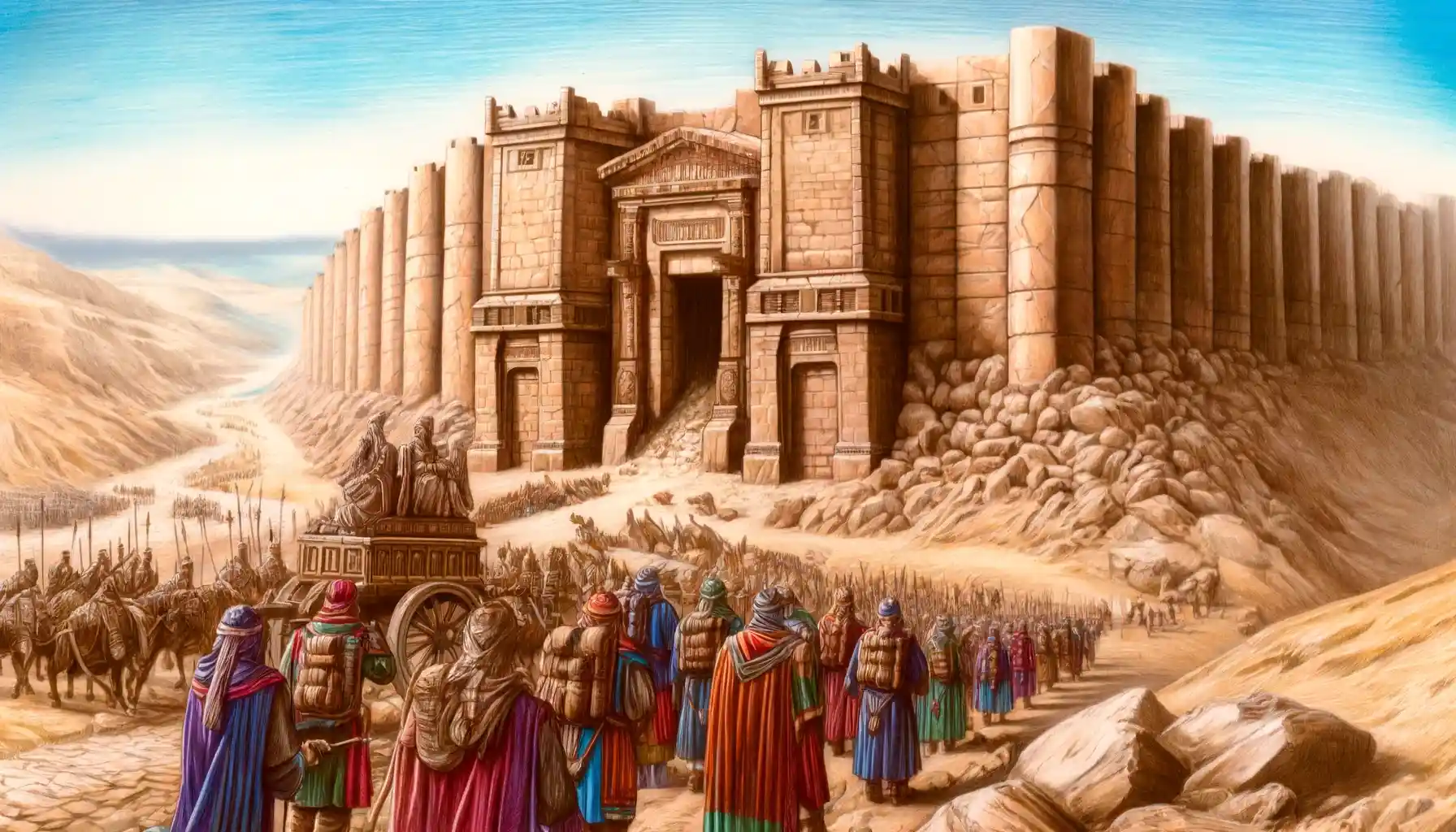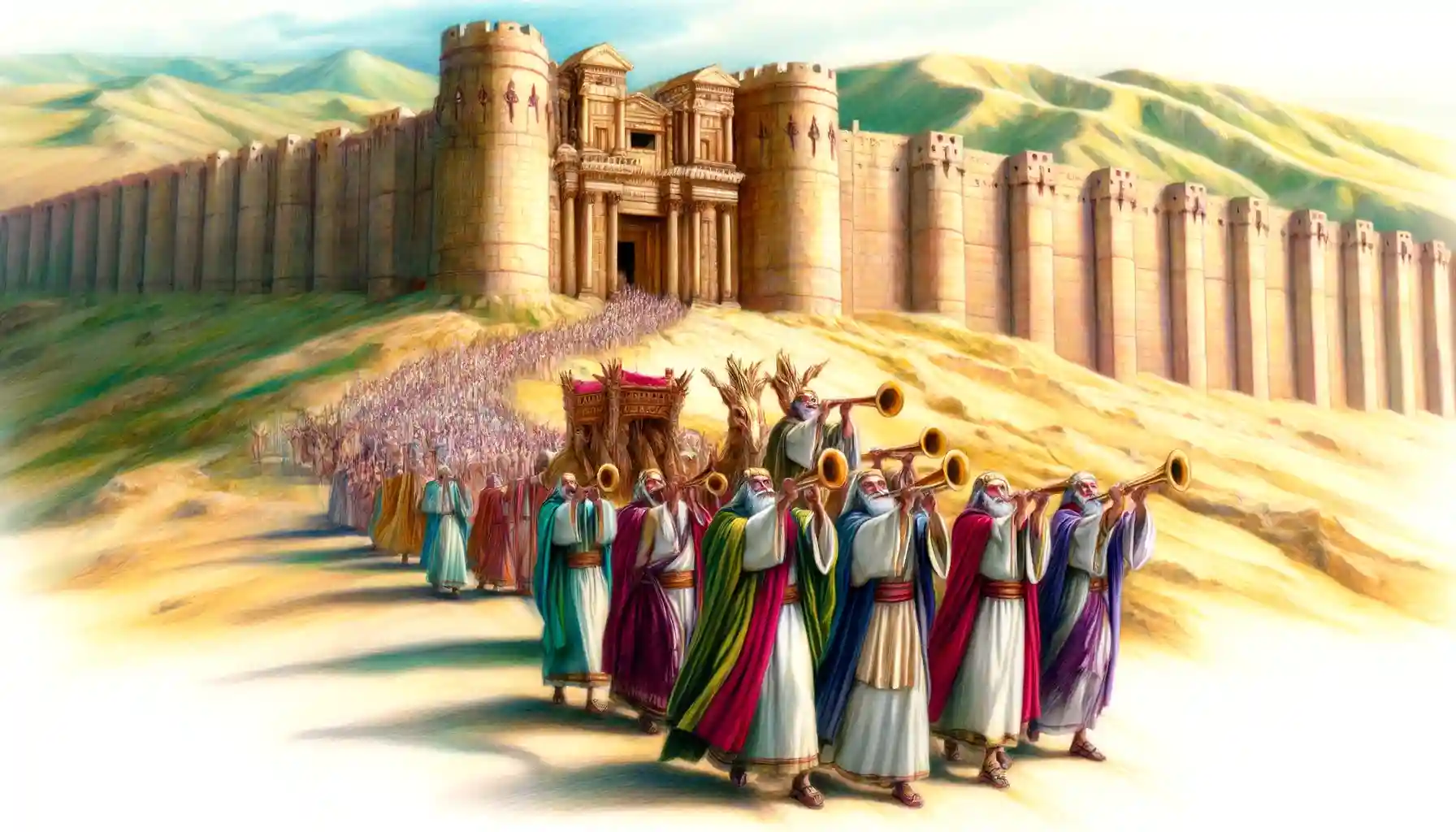Shechem, an ancient city in Samaria, holds significant biblical importance as a site of God’s promise to Abram, a place of covenant renewal under Joshua, and the location of Jacob’s Well, pivotal in Jesus’ encounter with the Samaritan woman.
The Fall of Jericho, as detailed in Joshua 6:1-27, describes how the Israelites, led by Joshua and following divine instructions, conquered the fortified city of Jericho by marching around its walls for seven days, resulting in their miraculous collapse on the seventh day, thus marking a significant and symbolic victory in the Israelites’ conquest of the Promised Land. This event highlights themes of faith, obedience to God’s commands, and the power of divine intervention, while also preserving the narrative of Rahab, who was spared for her faithfulness and assistance to the Israelites.
The Book of Joshua provides a narrative transition from the nomadic wanderings of the Israelites to their establishment as a settled community in a promised land, driven by divine guidance and covenantal fidelity.
The Book of Numbers narrates the Israelites’ tumultuous journey through the wilderness, detailing their organization, rebellions, and God’s provision and punishment, as they prepare to enter the Promised Land.
Joshua, the successor of Moses, exemplified unwavering faith and obedience to God as he led the Israelites in the conquest of Canaan, fulfilling divine promises and establishing a legacy of leadership grounded in commitment to God’s commandments.





